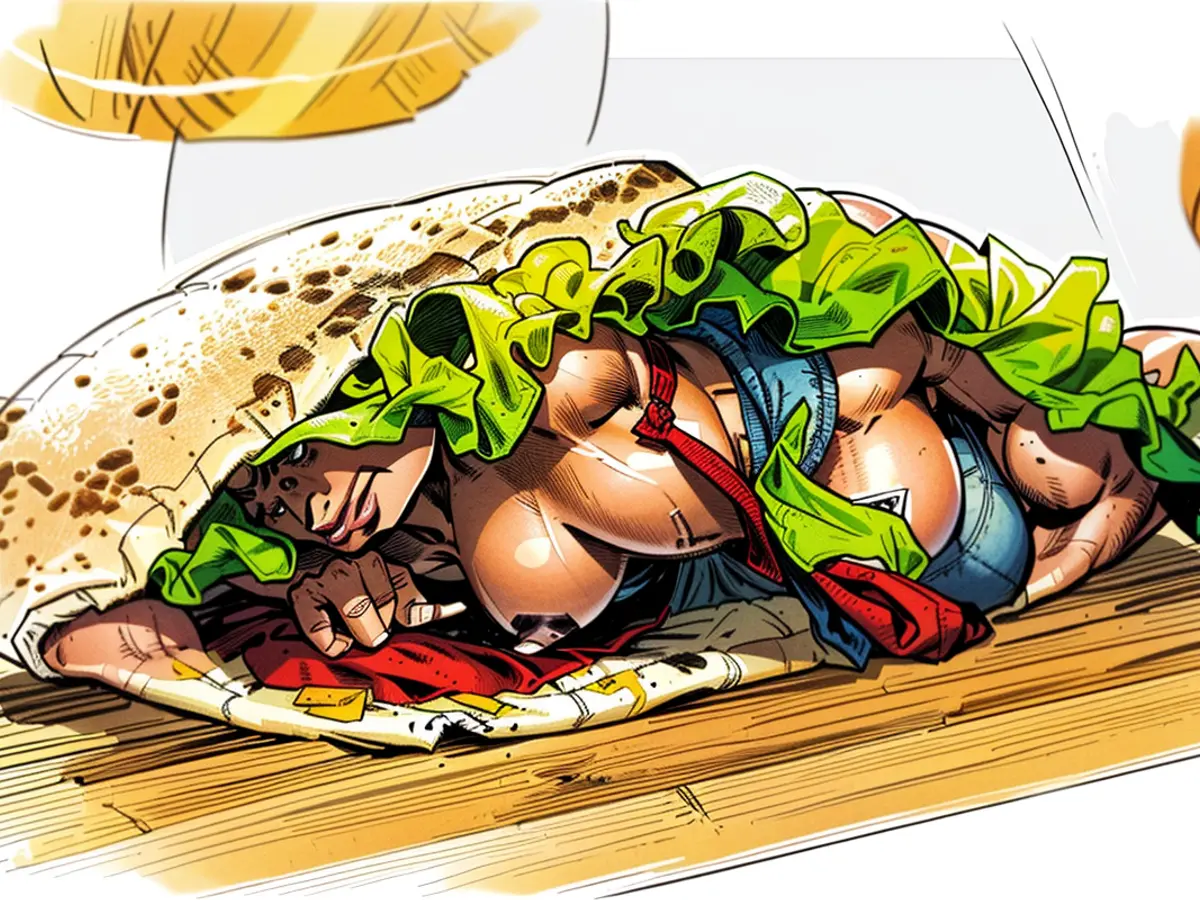EU-Application - Global Kebab Dispute: This woman wants to vinegar soak the 'German Döner' for him
For him, Vegetarians are turning into carnivores and Nazis with open culture: the Doner. Now, the most popular Fast Food of the Germans is in danger. The face of outrage: Huriye Ozener, Patent Attorney from the Turkish capital Ankara and spokesperson of the International Doner Federation, UDOFED, to which a series of Turkish Doner producers have joined.
She has filed an application with the EU, which could fundamentally change the name, price, and recipe of the German Doner. "We have initiated the registration for the traditional Doner," so Ozener. Including the type of meat to be used, marinating and skewering, and exact cooking time.
The Doner should be "traditional specialty." A problem for the barely regulated German Kebab industry, which often sells chicken as veal and does not always adhere to the legal hacked meat percentage. If Ozener is successful with her application, Doner could only be called Doner if it meets specific requirements.
Doner as "a taste culture that goes back to the Ottoman era"
"The registration is very important for us," says Ozener, the Chief Patent Attorney of the International Doner Federation. For her, it is an honor and a fortune to represent Doner in the name of UDOFED in 140 countries. "We are talking here about a taste culture that goes back to the Ottoman era."
Ozener and UDOFED's proposal is not the first of its kind. Time and again, protective associations or producers have tried to claim the "traditional specialty" label for Doner – most recently the Turkish Doner Producers in Europe (ATDID), whose application was filed in March.
At the EU level, it has never worked before. There are also no hard laws in Germany – only guidelines from the German Foodstuffs, Agriculture and Fisheries Commission (DLMBK), which were first recorded in 1991.
An authentic Doner skewer should therefore only consist of beef, veal, or sheep meat slices. The hacked meat percentage should not exceed 60 percent. Allowed additives are only onions, oil, eggs, milk, yogurt, salt, and spices. If other than the permitted additives are present or the hacked meat percentage is too high, the Doner may only be sold under another name.
The Doner industry has been mocking the regulations so far
Despite numerous inspections, the authorities have repeatedly found that the industry is disregarding the regulations. In 2021, for example, the Bavarian Health Department found that 83 percent of the examined Doners in the Free State were in violation. In most cases, labeling issues were identified. What was actually a "rotating spit" was sold as Doner.
UDOFED's application would further complicate the regulations, which are already being ignored. It even contains specific instructions on how the meat should be cut off the spit: from top to bottom, in 2-5 millimeter thick strips, with a 55 centimeter long Doner knife. The application does not address which bread the meat goes into or which sauce and salad mixture is applied to the meat.
If the application is successful, Turkish Doner would be raised to a culinary level with Spanish Serrano ham, Italian Mozzarella cheese, and the only German food of this quality: yeast. This refers to three of the nearly 90 designations for "guaranteed traditional specialties" protected by the EU.
"Doner led to a total exchange and cultural unity"
Would the EU support Ozen's concerns, we might soon stop ordering Doners but possibly "Meat Pouch" or "Rotating Roast" instead. The German Hotel and Gasthaus Association DEHOGA views this critically, as reported by tageschau.de: "The consequences would necessarily be new labels for Doner dishes, along with associated uncertainties and transparency issues, boundary disputes, and legal uncertainties."
It would be to the advantage of Doner lovers less so: "As the application does not explicitly concern questions of quality standards, but rather what is understood as a Doner in Germany."
However, the EU deputy Marion Walsmann doubts the success of the procedure, as reported by tagesschau.de: "There are currently many disputes regarding the origin of the Doner. It is therefore unclear who could hold the intellectual property rights." Even if the origins of the Doner lie in Turkey, it was introduced to Germany by Turkish immigrants.
Ozen himself says about German-Turkish relations: "Through the labor migration of Turks to Europe and other countries, Doner spread in Europe and other places. Doner led to a total exchange and cultural unity."
- Huriye Ozener, in her role as the Chief Patent Attorney of the International Doner Federation (UDOFED), aims to register the traditional Doner at the European Union, which could potentially limit how the Doner is named, priced, and prepared in Germany, considering its Ottoman roots as a taste culture.
- Backing Ozen's cause, Marion Walsmann, an EU deputy, acknowledges the ongoing debates regarding the Doner's origin, noting that despite Turkey being the birthplace of the Doner, its widespread popularity in Germany is due to Turkish immigrants.







